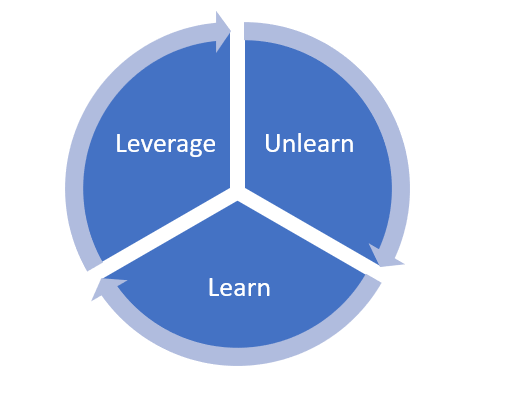As a Business Analyst we might need to work on Projects related to multiple industries and domains during our career. It is critical that we try to leverage our past knowledge and experience to learn and adapt to new industries or domains as we progress in our career. At the same time, it is equally important to unlearn things which might hinder the Project’s progress. I have worked on Retail, Consumer Packaged Goods, Utilities and Healthcare industries spanning across domains like Sales, Marketing, Finance and Operations. I have found the below framework often helpful to deliver maximum value to the Project I am working on.

Leverage: There are quite a few skills which are needed by a BA irrespective of the Industry or domain he/she is working on, like, communication, documentation, elicitation techniques, analytical frameworks, and usage of tools like JIRA. There also business processes which remain same across the industries with few variations, for example, the lead generation process and conversion to Opportunities, Customer complaint handling by Customer Service team. In such scenarios, the BA can leverage the knowledge gained from previous experience and build on it to quickly progress on the current project.
Learn: As a Business Analyst it is critical to have an open mind to learn new aspects of business, particularly, if there is a shift in Project from industry to another or one domain to another. For example, the Customer billing process in Consumer Packaged goods could be straight forward where invoices get issued based on the Products delivered, whereas, the billing process in Healthcare, that too in Medical Devices Industry could be complicated owing to the fact that Medical devices could be both rented and sold to both institutions and Patients and with or without Insurance. Also, the methodologies of Project delivery differ across the Projects and a BA needs to be able to learn and adapt to the methodologies.
Unlearn: Unlearning different concepts is equally important for efficient performance as is learning of new concepts. Carrying the weight of previously learnt concepts and trying to force fit them to a different domain or industry would often result in inefficiencies at work. For example, having the experience of implementing an order management solution for Product sale based business might not be applicable for implementing an order management solution for a subscription-based business. The Product life cycle and renewal mechanisms differ significantly for both the business models. Trying to force fit the knowledge of previous experience would result in frustration from both business and development teams. Hence, it is important to unlearn irrelevant knowledge from previous experience to demonstrate maximum efficiency in a Project.
Hence, in order to be relevant in the current dynamic work environment, it is important for a Business Analyst to be adaptable, as Alvin Toffler has rightly said, “The illiterate of the 21st century will not be those who cannot read and write, but those who cannot learn, unlearn, and relearn.”
Author: Ashish Adike